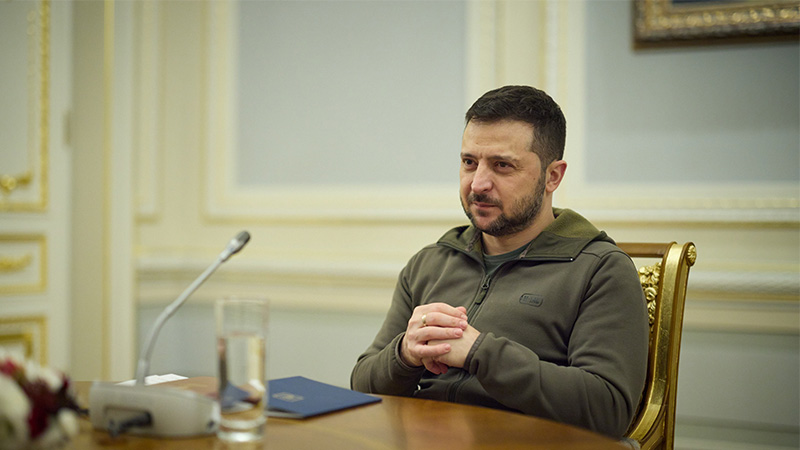Trending
Zelensky Takes Advantage of Iran-Israel Crisis to Plead For More Money

The Ukrainian leader has occasionally compared his country’s plight to that of Israel, a dubious distinction as Tel Aviv’s reputation is battered globally.
President Volodymyr Zelensky took to the X (formerly Twitter) social media platform Sunday to remind Western lawmakers not to forget about Ukraine as the world responds to Iran’s retaliatory strike against Israel.
“Ukraine condemns Iran’s attack on Israel using ‘Shahed’ drones and missiles,” the leader wrote, claiming Moscow and Tehran utilize the same kinds of armaments.
“The world cannot wait for discussions to go on,” he added. “Words do not stop drones and do not intercept missiles. Only tangible assistance does. The assistance we are anticipating… It is critical that the United States Congress make the necessary decisions to strengthen America’s allies at this critical time.”
Former Ukrainian minister Volodymyr Omelyan was even more forceful, slamming former US President Donald Trump whose “America First” brand of conservatism has questioned US military spending.
“I hope that Iran’s attack on Israel will send a powerful message to Republicans, namely to Mr. Trump – you cannot wait aside any more and think that those are small separate regional conflicts happening somewhere in Europe, Middle East, [or] Asia,” Omelyan said in an interview with a US-based tabloid media outlet.
“China, Russia, Iran and North Korea persistently attack the West,” he said, without clarifying when they have done so.
China, Iran and North Korea have historically been subject to deadly US-backed economic sanctions. The United States invaded Russia in 1918 in an attempt to thwart the country’s unfolding revolution, and invaded China to help put down the Boxer Rebellion.
Zelensky has occasionally compared Ukraine’s plight to that of Israel. In 2022 the Ukrainian leader claimed he saw the country as a model for Ukraine’s future, saying Ukraine should become a “big Israel.”
The president said he was referring to Israel’s model of hardened internal security, but critics may instead draw comparisons between the two countries’ strident nationalism and treatment of minorities. The Kiev regime has launched attacks on its Russian-speaking eastern regions for more than a decade, often killing civilians.
A 2014 massacre of trade unionists in Odessa drew particular condemnation. Paramilitary groups attacked a peaceful rally in the coastal city, forcing people to take refuge in the Odessa Trade Union House. The neo-Nazi gangs then set fire to the building, killing some 50 people and bludgeoning to death those who attempted to escape.
Anti-Russian Ukrainian nationalists have continued to constitute an important faction of the country’s armed forces, with Kiev officially integrating the neo-Nazi Azov Battalion into its military later that year.
Israel has also received criticism for its increasingly extremist trajectory in recent years. Neo-Nazi activist Richard Spencer publicly praised the country’s so-called “Jewish Nation State” law in 2018, viewing it as a model for his desired white ethnostate. Israeli human rights group B’tselem has called Israel an “apartheid” and ethnic supremacist regime.
Ukraine has become more coercive in recent months as US aid has been stalled amidst political infighting.
“Give us the damn Patriots,” demanded the country’s foreign minister Dmytro Kuleba last month, referring to the US-developed surface-to-air missile system Ukraine sees as crucial to its fight against Russia.
Kuleba appeared to economically blackmail Western countries in recent comments, suggesting Ukraine would drive up global oil prices with attacks on Russian refineries if US aid were not forthcoming.
Live Coverage: Iran Attacks Israel, Putin Threatens WW3
Read the full article here


















